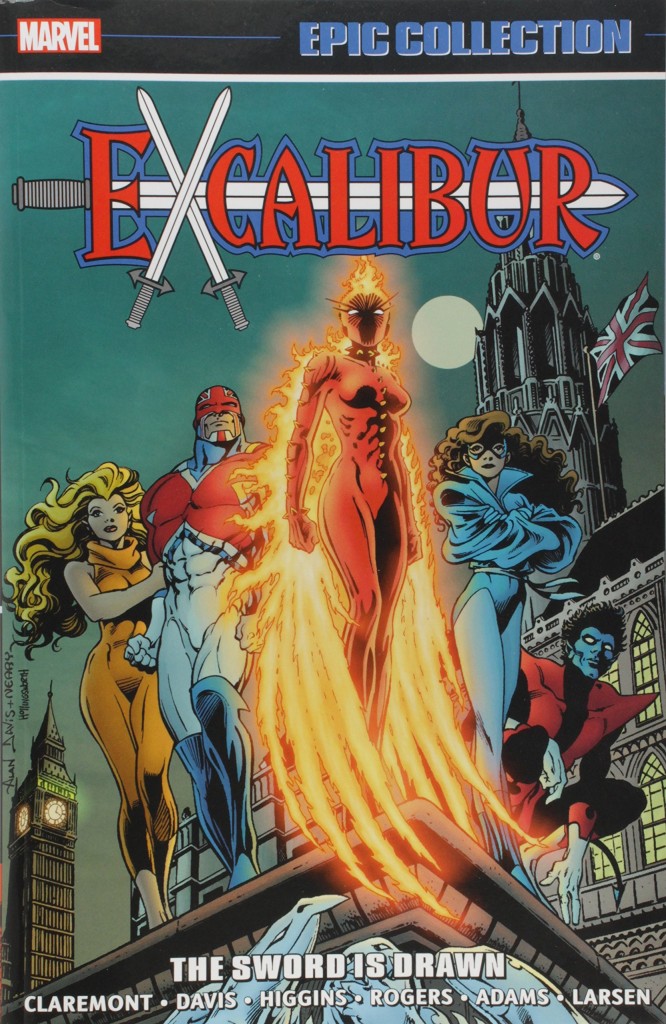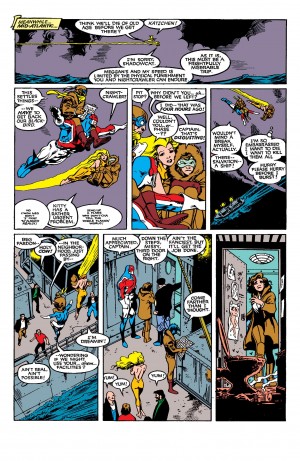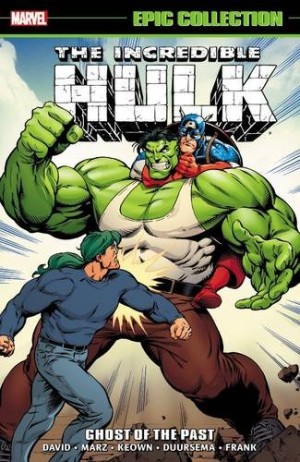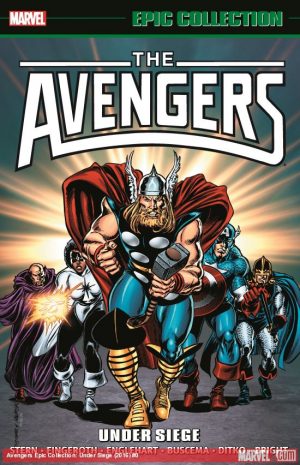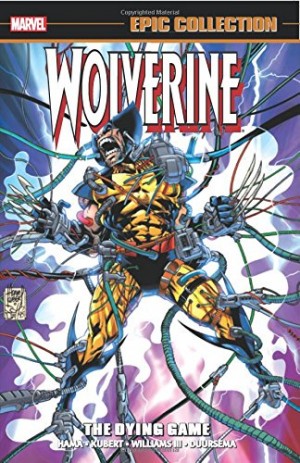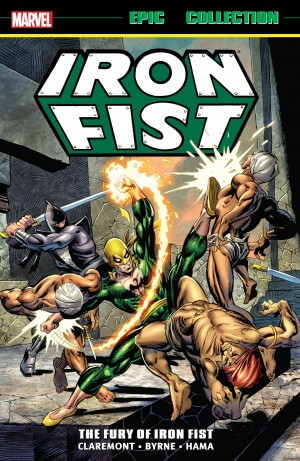Review by Ian Keogh
This bulky graphic novel gathers the first dozen Excalibur episodes, all written by Chris Claremont and largely drawn by Alan Davis, along with some associated material.
When published in 1988 Excalibur was really straining against the prevailing trends at Marvel by instituting a tone of comedy superheroics. It didn’t strive for the out and out laughs provided by DC’s contemporary Justice League titles, but when stacked against the dark melodrama of the X-Men and associated strips, some also written by Claremont, it was decidedly different. Although known at that point for a sharply observed blend of superhero thrills and soap opera melodrama, much of Claremont’s ground-breaking and successful work at the time hasn’t aged well. It’s pleasing to see, then, that The Sword is Drawn is still an enjoyable read.
Excalibur was launched at a time when the X-Men were missing, presumed dead, the emotional key Claremont uses to unlock the characters. Former X-Men Kitty Pryde and Nightcrawler are both injured and recuperating as the book opens, regretful about their colleagues, and they’re joined by Captain Britain and Meggan, whose relationship is going through a rocky patch. The Rachel Summers version of Phoenix rounds off what’s very much a mismatched cast, but one notable for being a superhero team with a greater percentage of women than men. Claremont emphasises the title’s direction by opening with a story featuring Mojo, his satirical other-dimensional psychotic TV producer, for whom lives are nothing and ratings are all. As a later story underlines, a little Mojo goes a very long way, but he’s a useful foundation stone, albeit one that’s not shed Claremont’s tendency to over-writing.
Most of Claremont’s remaining work is far better. The random whimsical elements would prove frustrating for readers at the time as he never fully addressed them, but with a few lapses (a suicidal Nightcrawler for one) he defines the cast well and makes good use of wacky characters from the Captain Britain strip, at that time unseen in the USA. Davis had drawn them previously, and he’s a big part of Excalibur’s sustained appeal. When he’s not drawing the material it looks nowhere near as good, because he brings absolute storytelling clarity combined with dynamic page layouts and a sly visual sense of humour. His new character designs are great, with the ludicrous bickering Warwolves a highlight.
Claremont created Captain Britain, but if reminder was needed that it wasn’t his finest hour it’s provided with the reprint of his first appearance. A contemporary review in the Financial Times of all places considered it “A farrago of illiterate SF nonsense”, and time hasn’t proved them wrong. Meggan’s début by Alan Moore and Davis is an excellent story diminished by being presented in isolation, and her first meeting with Captain Britain by Davis alone is charming. That’s the mood Michael Higgins and Erik Larsen are aiming for in a tale that sets Excalibur against thinly disguised versions of the Warner Brothers cartoon characters, but it long outstays its welcome. Higgins keeps throwing in more and more satires and the plot overflows into wackiness without redemption.
For those who’d prefer to buy the stories in a cheaper format, they’re split between an earlier Exaclibur collection called The Sword is Drawn, and another titled Two-Edged Sword. Getting the Captain Britain collection also provides access to the remainder of some thrilling work by Moore and Davis, and getting the other Captain Britain collection supplies the work by Davis alone, also very good.
